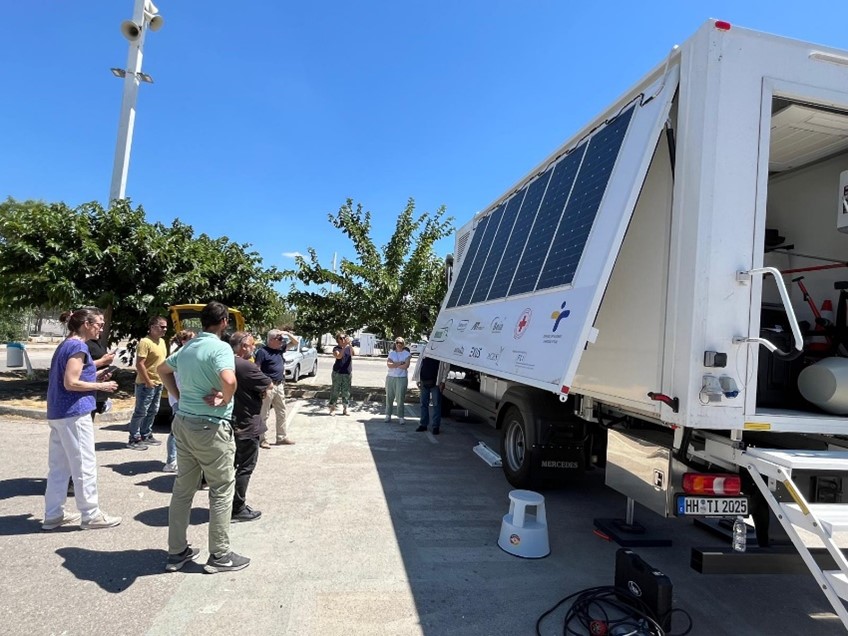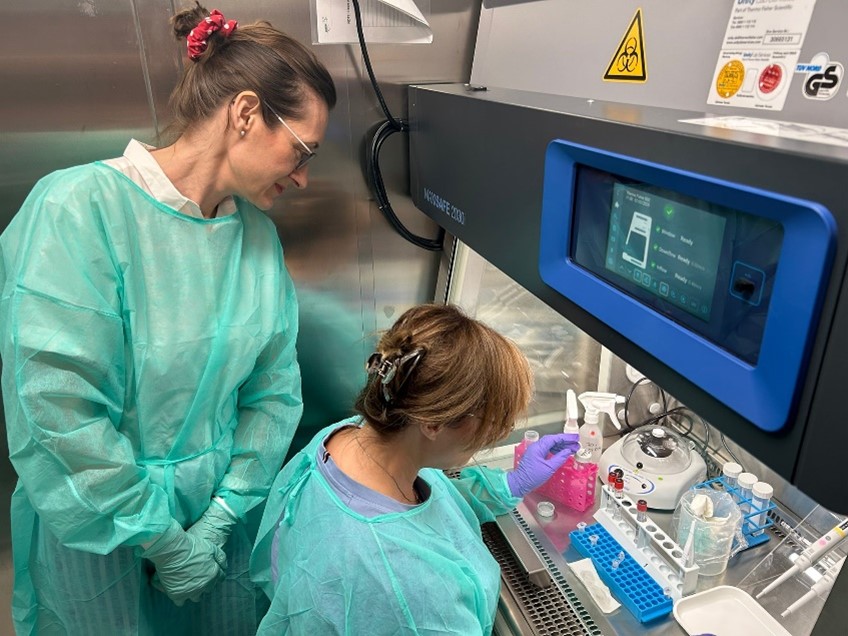This summer, the MOBILISE project reached another milestone with the successful deployment of the mobile laboratory in Greece. Building on the first two trials in Austria and Germany, the Greek mission tested the lab in real-life conditions and provided important lessons for the future. The mission unfolded in two main stages: intensive training in Athens, followed by a full field trial in Thessaloniki.
Training and Preparation in Athens
The mission began at the National Public Health Organization (NPHO) in Athens, where trainers from the Bernhard Nocht Institute for Tropical Medicine (BNITM) worked with local scientists.
Over four days (30 June – 4 July), the Greek team of the National Public Health Organization (EODY) received hands-on training in molecular testing for WNV, and in using a rapid diagnostic test developed by the Austrian Institute of Technology (AIT). Sessions focused on safe lab work, smart workflow design, and practical troubleshooting, so staff were fully ready for the field trial. In addition to the training, it was ensured that the core lab systems, including the MYRA liquid handler, MIC PCR machine, and LIMS tablets, functioned smoothly, giving confidence for the next phase.

📷 NPHO staff during training in Athens
Field Deployment and Performance in Thessaloniki (7 – 18 July)
On 7 July, the mobile lab moved to the Health Care Center of Nea Madytos, Thessaloniki, for a two-week testing phase. In this activity, MOBILISE integrated the West Nile Virus surveillance system implemented by EODY during the WNV outbreak season. During this period, 51 patient blood samples were collected, processed safely, and analysed on-site under BSL-2 conditions. PCR testing performed reliably, delivering at least 12 same-day results per day without contamination; all samples were negative for WNV RNA.
In addition, NPHO’s Biorisk Management Advisor carried out a full safety check and risk assessment during the field mission, confirming that the lab was functioning properly and meeting all biosafety requirements.

📷 MOBILISE laboratory stationed in Nea Madytos, Thessaloniki
Challenges Faced
Some challenges emerged during the mission: Moving and stabilising the heavy lab truck was more complicated than expected, especially in rural areas. Nonetheless the team ensured a quick setup.
The field mission highlighted some technical difficulties as well: Power supply was not always sufficient for larger equipment, the Laboratory Information Management System (LIMS) showed recurring glitches, and to avoid false positives the rapid diagnostic kit still needs refinement prior to use. However, the team managed a steady daily output, proving the lab can operate effectively in demanding conditions.
Even in a severe heatwave, the 11-tonne truck remained fully functional, with air conditioning keeping the lab stable and safe.
Looking Back
All things considered, MOBILISE once again proved its quick delivery and reliability of molecular diagnostics outside big city hospitals. The strong performance of PCR tests, the dedication of a small operator team, and the lab’s resilience in extreme heat showed its real-world potential.
At the same time, the challenges provided valuable guidance on what to improve. These lessons will shape the next round of technical and workflow adjustments, helping the mobile lab grow into a fully trusted tool for outbreak preparedness across Europe.
What’s next?
With the Greek mission completed on 18 July, we are heading to our final stop: Tanzania!
This last phase will begin shortly – stay tuned for the forthcoming insights!